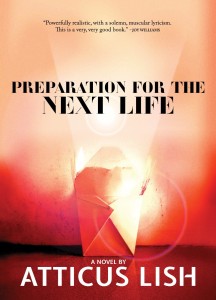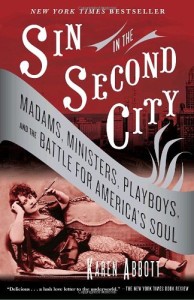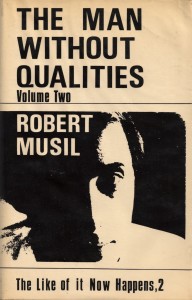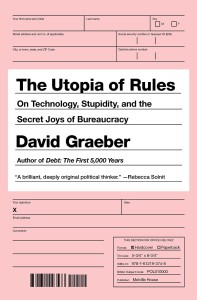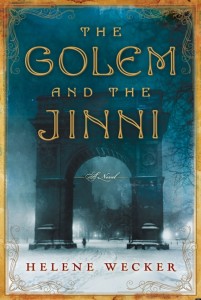
Interview with a Bookstore: Seminary Co-op
Fun Finds a Home on the South Side
The Co-op was started in 1961 when 17 Chicago Theological Seminary students banded together to order course books at a lower (i.e., wholesale) price. They each invested $10, and we still have, in our “archives,” all of the “founding documents” in spiral notebooks. The founders ran the shop out of the basement of the Seminary (hence the name), where the Co-op was housed for over 50 years (they moved in 2012). The group of investors (now known as “members”) grew quickly, and the store began offering much more than just textbooks. In 1983, longtime General Manager Jack Cella opened 57th Street Books about a block away—it’s also housed in a basement, and consists in five rooms of general interest titles, crammed into every nook of the unfinished, shabby chic interior. These days, we stock over 100,000 titles between our two stores, and have over 50,000 members worldwide, including the Obamas (the President had two book release events at 57th Street, the first of which had just a few attendees).
Part of the fun of the Co-op is its founding story, and the kind of mythology that’s developed around it. Sometimes, a founding member will come back after decades away and tell current booksellers tales of the early days. It was clearly a really exciting time for those involved, and speaks to the uniqueness of the neighborhood in which we find ourselves (Hyde Park, home of the University of Chicago)—where else would a few kids pool cash, on their own initiative, for academic texts, and then find their enterprise growing exponentially for decades?
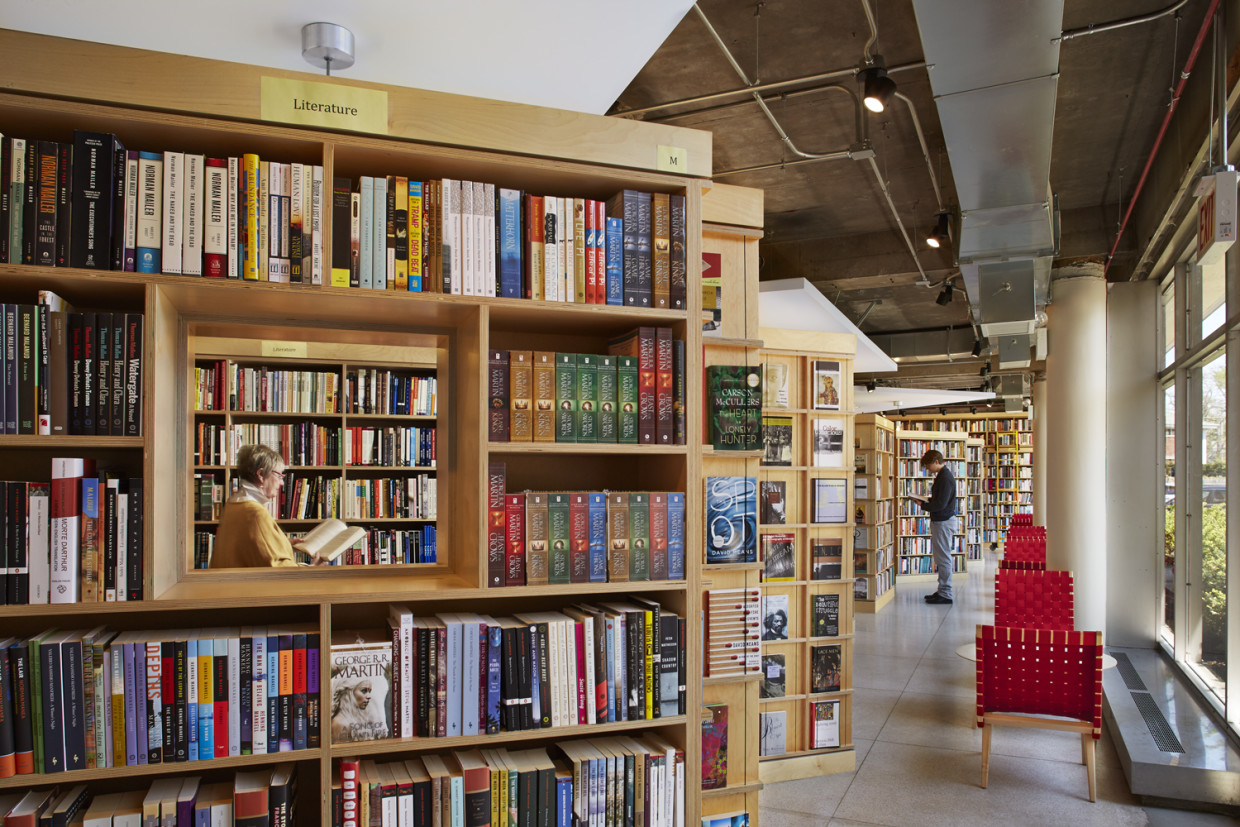
As big box stores have come and gone, and smaller indie establishments have closed their doors, the Co-op is now the only bookstore in Chicago’s historically underserved South Side, serving a diverse community well beyond the confines of Hyde Park. We take this fact seriously, and have recently upped our school and community outreach efforts. 57th Street Books’ slogan—“the South Side’s neighborhood bookstore”—is much more than just a catchphrase. –Alex Houston, Marketing Manager
What’s your favorite section in the store?
One of the great things about the Co-op is that our two stores have very distinct personalities—57th Street caters to a more general audience, while the main store has one of the best collections of academic titles in the world. We’re like two bookish siblings with different tastes, but a shared library. At the Co-op we have what we call “The Front Table,” which is not exactly a section, but instead just what it sounds like: a large, book-covered table that greets you when you come in the door. It features a curated collection of new releases, mostly from university presses, and is the first stop for most of our professorial visitors. It’s been the focus of a few articles written about the store, and was the name of our longtime newsletter. It’s considered a huge honor/accomplishment in academia to get your book featured on there.
At 57th Street, our kids’ section is unparalleled—a few of our current staff members basically grew up in the stacks. We’re lucky to have a really stellar group of local kids’ authors who call our store “home,” do events with us frequently, and stop by to sign stock and talk with booksellers and customers. Amazon can never commodify the experience of bumping into an author that helped you fall in love with reading, thank God.
If you had infinite space what would you add?
A bigger events space! A bar! A lot of us on staff would love to have a bookstore cat, but some people (no names) have allergies. So, if we had infinite space, we’d have a cat room full of felines for the allergy-free.
What do you do better than any other bookstore?
Since we have such a storied past, members all over the world from all walks of life, and are located in what is frankly a very socially and politically complex part of the city, we have to do a lot of things at once: respect and maintain tradition while keeping with current trends and moving into an uncertain future, reflect the needs and interests of a diverse community, and provide a space for free thinking, open discussion, and thoughtful debate without ourselves taking a political stance. This isn’t easy, but we do it, and, I think, do it better every day.
Who’s your weirdest regular?
For a long time, UChicago had the unofficial motto “where fun goes to die” due to its notoriously rigorous workload. I think the university has done a lot in recent years to disprove this, but it still does attract a certain type of quirky, intense intellectual for whom small talk is not a forte. We get a lot of extraordinarily arcane questions and bizarre requests for subjects and titles that sound satirical. I wouldn’t call these people “weird” so much as uniquely UChicago.
What’s the craziest situation you’ve ever had to deal with in the store?
Both stores have significant basement spaces in old, shared buildings, so we’re pretty familiar with antiquated plumbing systems and their foibles. On one warm late-summer day, there was an epic pipe burst, with fresh sewage spewing dangerously close to cartons of coursebooks. We tell all staff upon hire that “light janitorial duties” may be expected of them, but the heroic efforts a few booksellers made that day to save the books went above and beyond the call of duty.
What’s your best memory about visiting a bookstore as a child?
When I was in high school, several of my friends worked at a used bookstore in our small town, which was housed on three floors of a 19th-century row house—it was still broken down into apartments, but every room was stuffed with books, even the kitchens. Professors at the local college would donate huge collections, so the stock was above average. We treated the place like our living room and hung out there all the time (apologies to the owner!), working our not. My library grew by leaps and bounds, and it was there that I learned the beauty of browsing—so much of what I ended up buying, reading, and loving was stuff I stumbled upon on long and lazy afternoons there.
If you weren’t running/working at a bookstore what would you be doing?
I—and several other staff members, past and present—are PhD program dropouts. I’m not sure any of us would be professors if we weren’t working at the store, but being a bookseller at the Co-op allows us to stay close to and engaged with the academy without all of the tenure concerns, committee commitments, etc. that plague professors. It’s kind of perfect.
What’s been the biggest surprise about running a bookstore?
There’s not enough time to read! Seriously, once the ordering is done, the events executed, the shipments received, the customers satisfied, your average bookseller is kind of exhausted. Add to that the fact that you have more books coming your way than ever before—ARCs! Damaged books! Things you buy with your employee discount!—and the nightstand pile quickly gets out of control. Talking about books all day with customers gets me hungry for reading, too, and all of this makes those rare occasions when I find myself alone at last with a good book all the more delicious.
SLIDESHOW: Seminary Co-op Staff Recommendations
- ALEX (MARKETING MANAGER) RECOMMENDS: As gentrification seeps into the outer boroughs, and our collective vision of New York City becomes increasingly sanitized, it’s easy to forget that it remains a hub of struggle, a beacon of both hope and despair. Atticus Lish – yes, Gordon’s son – follows three broken lives (a soldier, an immigrant, and an ex-con) as they entangle in love and squalor in the darkest corners of Queens. This is a new and necessary take on the tired tale of broken American dreams, and a powerful but never preachy indictment of our broken immigration, veteran affairs, and prison systems.
- HOLLY (BOOKSELLER) RECOMMENDS: Enter the world of the Everleigh sisters, two of Chicago’s most famous madams who had strong ideals of what a brothel “should be.” This compellingly researched piece of historical fiction propels the reader through the lives of these powerful women. Abbott masterfully weaves together a cohesive narrative detailing their lives, their morals, and the nationwide conversation about sex and sin in which they were inextricably ensnared.
- JEFF (DIRECTOR) RECOMMENDS: An encyclopedic, essayistic novel of ideas set in pre-WWI Eastern Europe. Musil is intelligent, funny and precise. His masterpiece reflects the highest aspirations of the novel.
- KEVIN (MANAGER) RECOMMENDS: A fascinating and impassioned examination of the evolution, reaction against, and current status quo acceptance of the paper mounts if bureaucracy in American society. With references as wide-ranging as Post Office rules and their influence on the organization of the Soviet Union, the false promises of technological advancement and fulfillment, and the lessons to be learned from fantasy game systems such as D&D, this book pulls everything together to form clear arguments both for and against certain bureaucracy.
- ALICIA (BOOKSELLER) RECOMMENDS: Not only is the prose of this book beautiful in the most absolute sense–reminiscent of a fairytale in terms of its rolling cadence– the interweaving of narratives both past and present, of freedom and bondage, and of the spiritual and the secular left me wondering about the ideas of choice and fate. When faced with the sort of dreaded mortality these concepts present, how hard would you fight and what would you sacrifice to keep your life your own?









